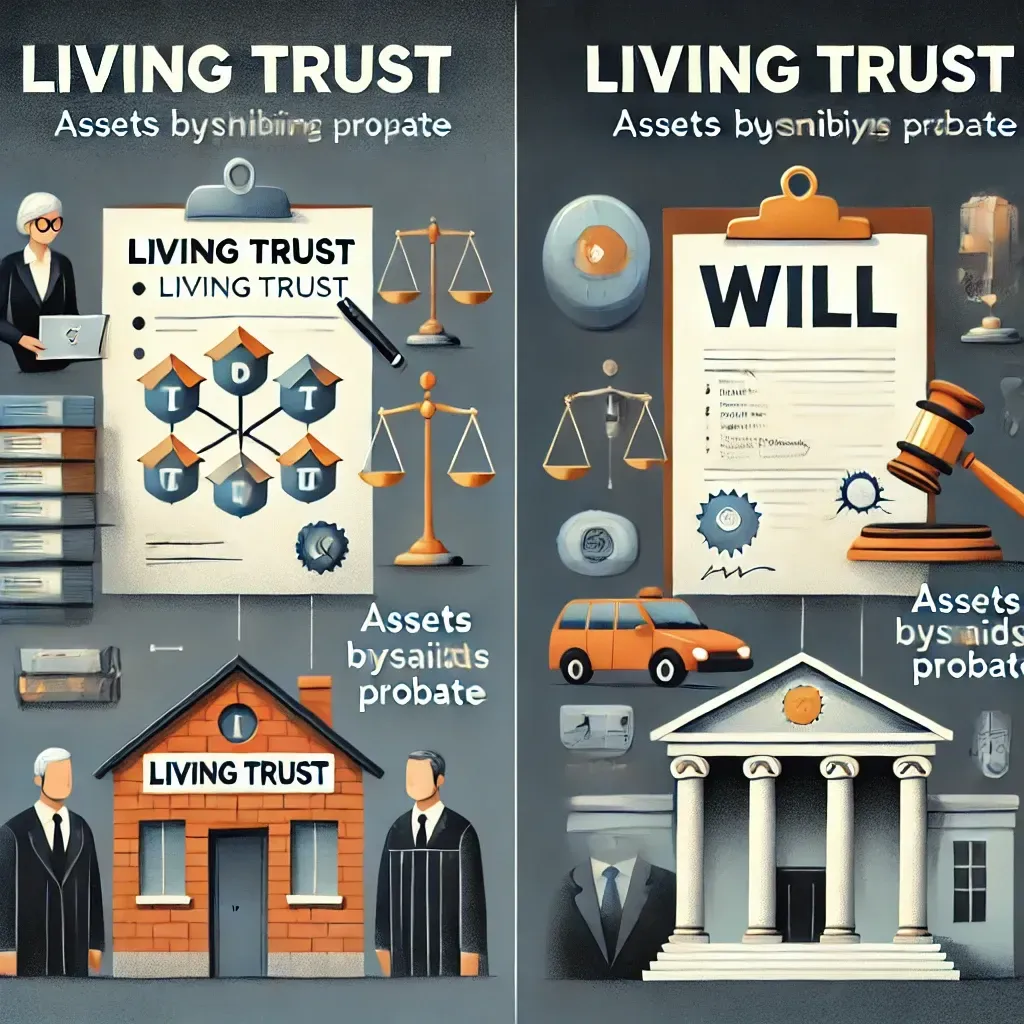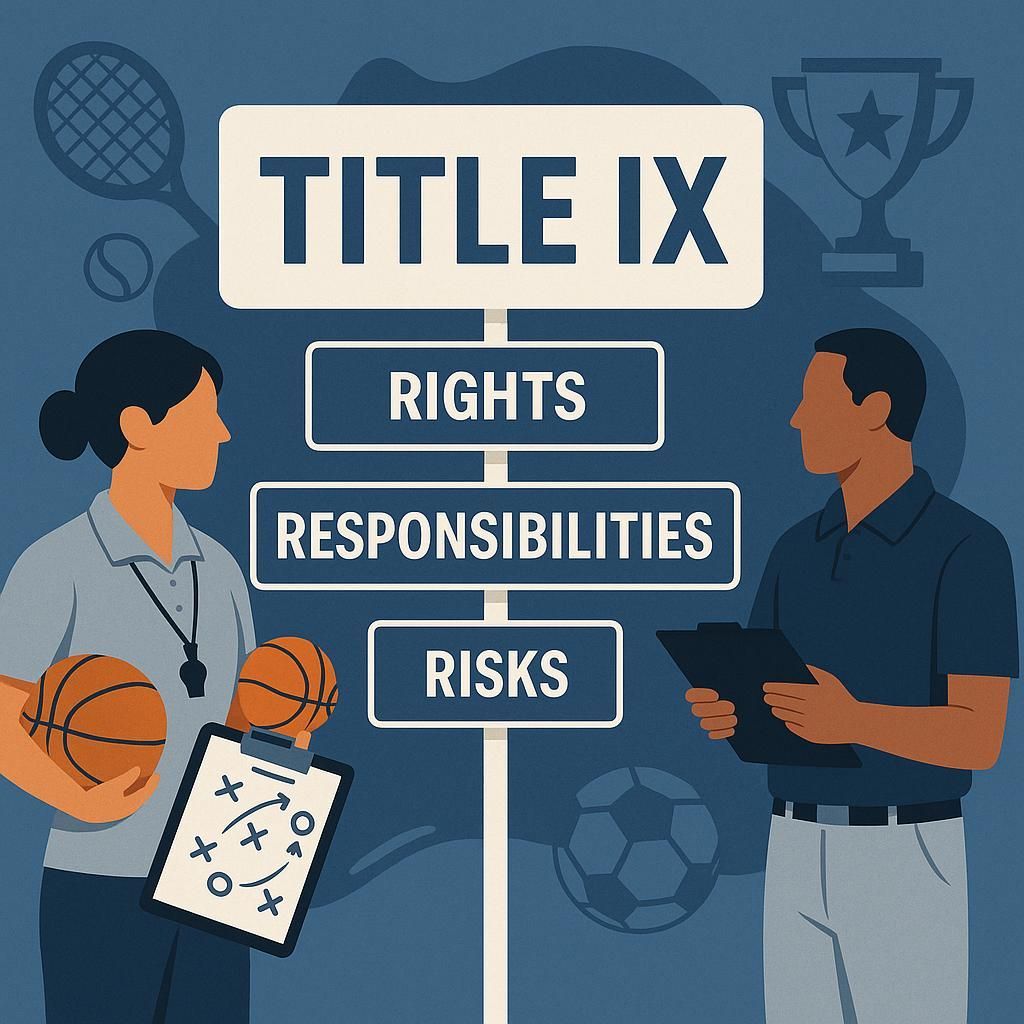Living Trust vs. Will: Which Is Best for Protecting Your Assets?
When it comes to estate planning, one of the most common decisions people face is choosing between a living trust vs. a will. Both of these tools serve important purposes in ensuring your assets are distributed according to your wishes, but they function in different ways. Understanding the key differences between these two options can help you make the right decision for your situation and your family.
In this article, we will break down the key differences between a living trust and a will, exploring how each works, their benefits, and how they can protect your estate and loved ones. Whether you're looking to avoid probate, protect your minor children, or ensure your final wishes are carried out, understanding the nuances of each tool will help you make an informed choice.
What Is a Living Trust?
A living trust is a legal arrangement that allows you to manage your assets during your lifetime and ensure that they are distributed according to your wishes after your death, all without the need for probate. The ability of a living trust to spare your heirs from the time-consuming and expensive probate process is one of its main benefits.
Living trusts are divided into two types:
- Revocable living trust: This type of trust can be changed or revoked during your lifetime.
- Irrevocable trust: Once established, this trust cannot be changed, but it offers greater protection from creditors and estate taxes.
Living trusts can help protect assets from court-supervised proceedings and keep your estate private.
What Is a Will?
A will is a legal document that outlines how your assets should be distributed after your death. It also allows you to name guardians for your minor children and make specific arrangements for your property. Unlike a living trust, a will must go through probate court, where the court supervises the process of distributing assets according to the terms of the will.
Wills are commonly used for simpler estates and are an important part of any estate plan, ensuring that your final wishes are carried out.

Key Differences Between a Living Trust and a Will
While both living trusts and wills serve to distribute your assets, the key differences between them lie in their functionality and the way they handle your estate.
- Probate: One of the main differences is that a living trust helps to avoid probate, while a will must go through the probate process. This is significant because probate can be time-consuming and involve additional court fees.
- Privacy: A living trust protects the privacy of your estate, but a will, once filed with the probate court, becomes a public record.
- Incapacity Planning: A living trust also allows you to appoint a successor trustee to manage your affairs if you become incapacitated, whereas a will only takes effect after your death.
- Cost and Complexity: Establishing a living trust can be more expensive upfront than creating a will, but it can save money in the long term by avoiding probate and court supervised legal processes.
Why Avoid Probate?
The probate process is a court-supervised procedure for validating a will and distributing assets. This process can take months, or even years, to complete and involves legal fees that reduce the estate’s value. By using a living trust, your estate can bypass probate, ensuring your assets are distributed more quickly and efficiently.
Here are some key reasons why people aim to avoid probate:
- Time: Probate can take months or years, delaying the distribution of your estate.
- Cost: Probate involves legal fees, court fees, and administrative costs that reduce the overall value of your estate.
- Privacy: Probate is a public process, meaning the details of your estate become a matter of public record.
A living trust provides a streamlined way to transfer property and assets without involving the probate court.
Revocable Living Trust vs. Will: Which Is Right for You?
Deciding between a revocable living trust vs. a will depends on your personal circumstances and your estate planning goals. A revocable living trust gives you more control over your assets during your lifetime, allowing you to change or revoke the trust if your circumstances change. It also helps with incapacity planning and can be beneficial if you want to ensure your estate avoids probate.
On the other hand, a will is typically simpler and less expensive to set up. It’s a good option for those with smaller or less complex estates.
Protecting Your Assets with a Living Trust
A living trust is a powerful tool to help protect assets from the lengthy probate process and ensure they are distributed according to your wishes. By transferring ownership of your property to the trust, you can ensure that your estate remains intact and is managed in a way that benefits your heirs.
Additionally, a living trust can help reduce or even eliminate certain estate taxes, ensuring more of your estate is passed on to your beneficiaries. This is especially important for individuals with larger estates who are concerned about minimizing their tax liabilities.
The Role of a Successor Trustee
The person you designate to oversee your trust in the event of your incapacitation or death is known as a successor trustee. This individual is responsible for managing and distributing your assets according to the terms of the trust. Unlike a will, which requires the appointment of an executor and the involvement of a probate court, a living trust allows for a smooth transfer of responsibilities to your successor trustee without court intervention.
Potential Estate Tax Savings with a Living Trust
For individuals with larger estates, a living trust can provide potential estate tax savings. By properly structuring your estate, you may be able to minimize or eliminate certain estate taxes. While both a living trust and a will allow for tax planning, a living trust can be a more effective tool for managing federal estate tax obligations.
Protecting Minor Children with a Will
A will remains an essential document for parents of minor children. Through a will, you can designate a guardian for your children and ensure their financial and personal well-being. A will can work in tandem with a living trust to provide for your children in the event of your passing.
Living Trusts and Wills: Working Together
In many cases, individuals may choose to use both a living trust and a will to achieve their estate planning goals. A revocable trust can be used to manage financial assets and property, while a last will and testament can address other personal matters, such as guardianship for minor children. Together, these documents form a comprehensive estate plan.
Choosing the Right Estate Planning Attorney
Deciding between a living trust vs. a will can be complex, and the right choice depends on your unique circumstances. Consulting an experienced estate planning attorney can help you make the best decision for your situation. An attorney can guide you through the intricacies of estate planning documents and ensure that your estate is structured to meet your needs and goals.
Understanding How to Distribute Assets with Revocable and Irrevocable Trusts
One of the primary functions of both revocable living trusts and irrevocable trusts is to clearly define how to distribute assets to beneficiaries, whether during your lifetime or after your passing. A revocable living trust allows you to retain control over your assets, and you can modify or revoke the trust as needed. In contrast, an irrevocable trust permanently transfers your assets into the trust, and you can no longer make changes once it's established.
The benefit of these trusts is that they avoid a court-supervised legal process, ensuring that your heirs can avoid probate and receive their inheritance faster. By using these trusts, you also have the ability to reduce estate taxes on your assets, which is particularly important for those with larger or more complex estates.
For families with a surviving spouse, the trusts can help ensure that the spouse is financially secure while also preparing for the eventual transfer of assets to other beneficiaries. Whether you're transferring assets like investment accounts, bank accounts, or property deeds, setting up a trust is a powerful way to manage and distribute your estate effectively.
Contact Us for a Free Consultation
If you're unsure whether a living trust or a will is the best option for protecting your assets and ensuring your wishes are followed, we can help. Our experienced attorneys at Masterly Legal Solutions are here to provide guidance tailored to your unique situation. We offer expert advice on estate planning and can help you make the best decision for your family's future.
Contact us at (972) 236-5051 for a free consultation to discuss your estate planning needs. Our team works with clients throughout the country and nationally to ensure their assets are protected and their final wishes are honored.
This article is not legal advice; rather, it is meant to be informative primarily. Please speak with a qualified lawyer for particular legal advice.

Looking for Legal & Business Solutions? Contact Us Now
Fill in the form or call us to set up a meeting













